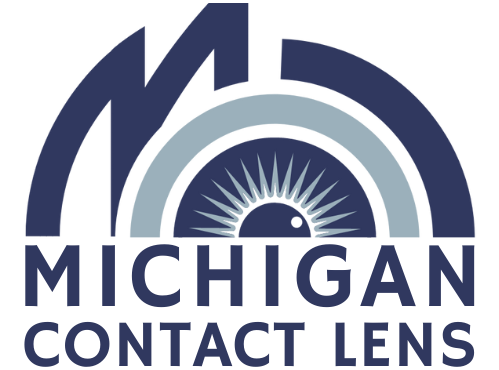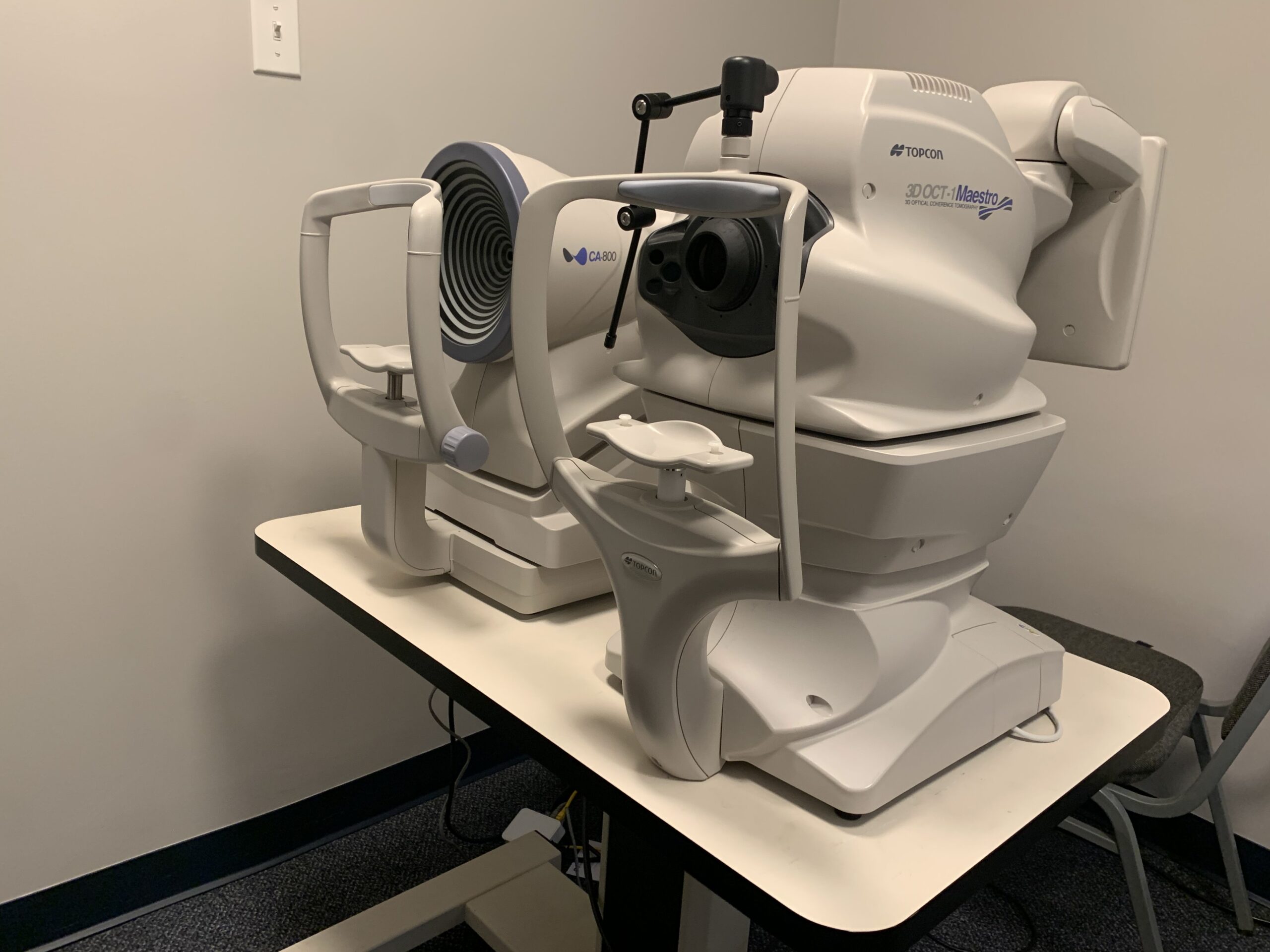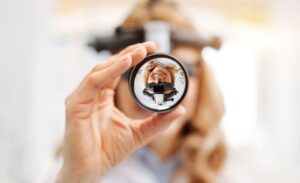Comprehensive Eye Exams
Medical Eye Exams in Metro Detroit, MI
An eye exam is a series of tests that are performed by an eye doctor (ophthalmologist or optometrist) to assess your vision and check for any eye problems or conditions. The eye exam typically includes a number of different tests to evaluate your eyesight, eye health, and overall visual function. These tests may include a visual acuity test, which measures your sharpness of vision; a refraction test, which determines your eyeglass or contact lens prescription; and a number of other tests to check the health and function of your eyes, such as a pupil reaction test, an eye muscle test, and a visual field test. During the exam, your eye doctor may also ask about your medical history and any current medications you’re taking, and may perform a thorough examination of the front and back of your eyes to check for any abnormalities or signs of disease.
At Michigan Contact Lens, we understand the importance of comprehensive eye examinations. Your eyesight is a crucial aspect of your daily life and maintaining healthy vision is essential for your overall well-being. That’s why we offer comprehensive eye examinations to help diagnose and treat any potential vision problems.
During a comprehensive eye examination, our team of experienced optometrists will assess the health of your eyes and overall vision. This includes a thorough evaluation of your visual acuity, eye muscle function, and eye health. We may also use specialized equipment to test for conditions such as glaucoma or cataracts.
In addition to checking for vision problems, comprehensive eye examinations are also an opportunity to discuss any concerns you may have about your vision or eye health. Our team is here to listen to your questions and address any concerns you may have.
Comprehensive eye examinations are important for everyone, not just those who wear glasses or contact lenses. Even if you have no current vision problems, it’s important to have regular eye exams to ensure that your eyes are healthy and to detect any potential issues early on.
At Michigan Contact Lens, we offer comprehensive eye examinations for all ages. Whether you’re a child in need of their first eye exam or an adult in need of a routine check-up, we’re here to help. We also offer a wide range of eyewear options, including glasses and contact lenses, to help you see clearly and comfortably.

What We Will Examine During Your Comprehensive Eye Exams
The following aspects will be examined during a comprehensive eye examination at Michigan Contact Lens.
- Visual acuity test: This test measures how well you can see at different distances and is usually done using a chart with letters or numbers that get smaller as you move down the chart. The optometrist will ask you to read the letters or numbers aloud and will record your results to determine your visual acuity.
- Eye muscle function test: This test assesses the movement and coordination of your eye muscles, which are responsible for moving your eyes in different directions. The optometrist will ask you to follow a moving object or light with your eyes and will observe how well your eyes move and track the object.
- Eye alignment test: This test checks for any misalignment or miscommunication between your eyes, which can cause double vision or other vision problems. The optometrist may use a cover test or a special machine to measure the movement of your eyes and assess their alignment.
- Eye pressure test: This test measures the pressure inside your eye, which can be affected by conditions such as glaucoma. The optometrist will use a tonometer to gently press on the front of your eye and measure the pressure inside.
- Examination of the front and back of the eyes using specialized equipment: The optometrist will use a slit lamp or other specialized equipment to examine the front and back of your eyes in detail. This may include looking for signs of cataracts, glaucoma, or macular degeneration, as well as any other abnormalities or issues.
- Discussion of any concerns or symptoms: During the exam, the optometrist will ask about any concerns or symptoms you may be experiencing, such as dry eye, headaches, or difficulty seeing at night. They will take this information into account when making recommendations for treatment or eyewear.
- Recommendations for treatment or eyewear: Based on the results of the exam and any symptoms or concerns you may have, the optometrist will provide recommendations for treatment or eyewear. This may include prescription glasses or contacts, as well as recommendations for lifestyle changes or medical treatment to address any underlying issues.
Don’t wait until you’re experiencing vision problems to schedule an eye exam. Protect your vision and overall eye health by scheduling a comprehensive eye examination at Michigan Contact Lens today. Our team is dedicated to providing the highest quality eye care and ensuring that you have the best vision possible.
Frequently Asked Questions About Eye Examinations
Each part of the comprehensive eye exam provides important information about the health of your eyes. Dr. Kramer ensures that you are getting a complete examination as part of your commitment to your overall health. Associated with Michigan.gov
The frequency of comprehensive eye exams will vary based on your age and overall health, as well as any specific vision or eye health concerns you may have. In general, it is recommended that adults get a comprehensive eye exam every two to four years, depending on their age and risk factors for vision problems. Children and teenagers should have eye exams more frequently, typically once a year or every two years.
A: During a comprehensive eye exam, the optometrist will start by collecting your medical history and performing a visual acuity test to determine how well you can see at different distances. They will also check your eye muscle function, eye alignment, and eye pressure, as well as examine the front and back of your eyes using specialized equipment. The optometrist will discuss any concerns or symptoms you may be experiencing, and provide recommendations for treatment or eyewear if necessary.
A: Yes, a comprehensive eye exam can often detect signs of other health problems, such as diabetes, high blood pressure, or even cancer. During the exam, the optometrist will look for any abnormalities or changes in the appearance of your eyes that may indicate a larger health issue.
There is usually no special preparation required for a comprehensive eye exam. However, it is a good idea to bring a list of any medications you are currently taking, as well as any eyewear you wear (such as glasses or contacts). You may also want to bring a list of any concerns or symptoms you are experiencing, to help the optometrist determine the best course of action.






